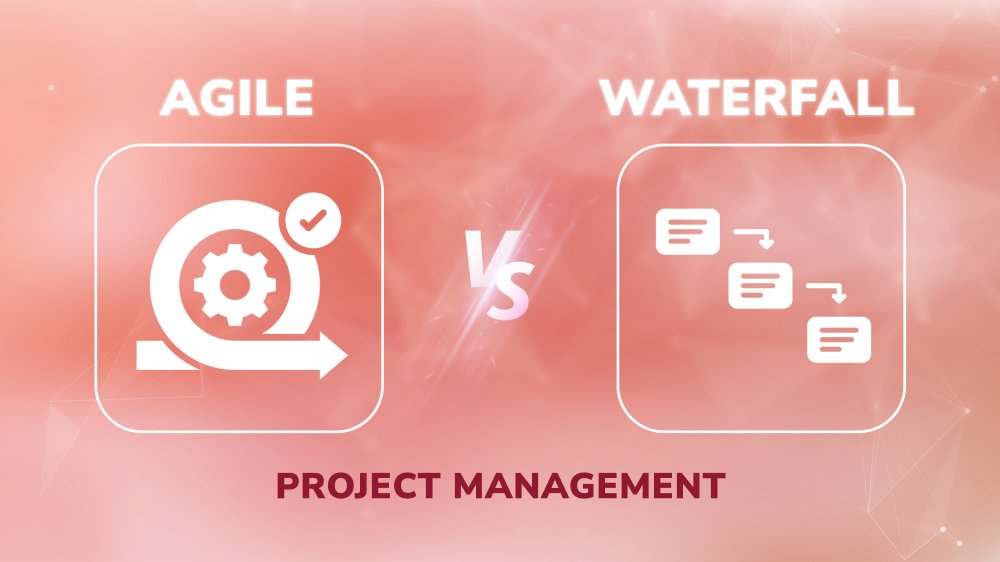12 Major Reasons Leading to a Software Project Failure & Best Practices for Success

Content Map
More chaptersTo be considered successful, a software project must deliver the required features and functions while meeting the expectations of the stakeholders. No matter how well-thought-out and planned a software development project might be, there are certain factors that can lead to its failure. Therefore, we will outline 12 common reasons for a software project failure and suggest some best practices for you to follow.
Top 12 Reasons Why Software Development Projects Fail
1. Unclear Software Requirements
Clear requirements are essential for any software development process; without them, there is a high risk that some problems might arise down the road. If you don’t know what to build or how to build it, this is bound to cause serious issues - in most cases, the issues won’t become apparent until you are beyond the development stage. So, it is crucial to have a clear vision of what needs to be built and why. Also, it is critical not to cut corners here. Project requirements need to be realistic and attainable - if they are too vague or unrealistic, this will spell trouble as the project evolves. When you have kicked off a software project, make sure you nail down all of the requirements first. Undefined or incomplete requirements can often cause custom software development projects to fail.
2. Lack of User Involvement
Another main reason why software projects fail is that they aren’t built around users’ needs and requirements. It’s not enough to design something - your design won’t be successful if you don’t take end-users into consideration, as they will be the ones using it and therefore coming up with requirements and feedback. Accordingly, it is critical to involve end-users in the planning and design process - they might know more than you about what will work for them, even if that’s not immediately apparent. In brief, user involvement can make or break a project.
3. Lack of Communication Between Clients & Developers
The relationship between the client and the development teams is crucial as it determines how smoothly the project goes. Lack of communication between the different parties involved in a project brings about its own issues. Most of the time, software development projects fail because key people don’t get on and thus work together poorly or not at all.
Therefore, it is important for the client to keep the team updated on new features and for the team to inform their client on how things are progressing. Clear, informative, and regular communication is the only way to make sure everyone has clear ideas of what they are supposed to do. When you start a new project, don’t forget about putting in place an effective channel for communicating progress.
4. Poor or No Planning
A software project plan should clearly define all necessary tasks that will have to be completed, the deadlines for each of them, and the people responsible. A lack of a detailed project plan is a big reason why software projects fail. Building a project without having an overall picture in mind from the start can result in problems down the road, as you might have to backtrack and change your approach multiple times, wasting time and effort. Incomplete or incorrect information about individual tasks might not seem like a big deal - until you discover how much it can affect the overall outcome.
More often than not, projects fail because they are incorrectly planned or go off course, with no one noticing that this has happened. If you don’t plan your project thoroughly before starting to work on it, you might end up running into problems swiftly.
5. Failure to Focus
When a project is underway, there is a tendency for people to feel the need to add new features to it. This can lead to a focus shift and additional efforts that aren’t really needed. For example, let’s say you are building an e-commerce website, and during development, you realize that there is no mobile version for your website, and you would like to develop one - this would require another big effort. Stay focused on the main requirements and deliverables from the start in order to succeed.
6. Unclear Goals
It is essential for all stakeholders involved in a project to have crystal clear goals - what needs to be accomplished and why. Otherwise, you might find yourself working away without knowing how your work fits into the bigger picture, as well as whether or not it’s actually contributing to the end goal. When you start working on a new software development project, make sure that all goals are defined and that they are shared with anyone involved.
7. Unrealistic Time Frames/Deadlines
Deadlines shouldn’t be set too early on in the development process as they might lead to failure due to unrealistic timeframes. As a rule of thumb, projects should be broken down into phases with specific goals and deadlines for each development phase. If you don’t do this, you’ll find yourself under pressure to complete everything on time, and you will likely fail as the project progresses due to its growing scope and complexity. When setting up a timeline for your project, make sure to factor in all necessary steps and deadlines.
8. Insufficient Tests
It is really important to test the software before releasing it. There are two types of tests that need to be done: unit tests and end-to-end tests. Unit tests focus on testing specific parts of the codebase, while end-to-end tests check if all modules are working together correctly.
Not including unit or end-to-end tests in your development workflow can lead to critical bugs and glitches that might delay and/or ruin the release, especially if one of those (or multiple ones) isn’t noticed right away. When working on a new project, make sure that unit and end-to-end tests are included in the process.
9. Poor Communication Between Team Members
Most of the time, a project team is made up of different people with various backgrounds. This can cause problems if there are personality clashes, lack of motivation, or any other issue that might make team members not see eye-to-eye. Certainly, there are ways to work around this, but it should always be taken into account right from the start.
When assembling a development team for your project, check that all members have the necessary skills and qualifications and if they can work together properly. Also, communication is essential, so make sure to keep it clear and open at all times.
10. Incomplete Specifications or Lack of Documentation
In order to have a successful software project, it needs to be well-documented. From the very beginning, all members of the team need to know what their responsibilities are and what they should do to accomplish their goals. When writing your specifications, make sure that they cover every step of the development process from the start until release - or else you might experience major problems later on due to not knowing how things should be done.
When writing your documentation, make sure that it covers every step of the development process (and also serves as a reference for future updates).
11. Software Quality Issues
As there are several different modules involved in most software projects, they might need to communicate with each other or share data. This is where issues arise. Some methods might not be very efficient and thus slow down the application, while others might leave security holes that can compromise your software’s integrity. When working on something with multiple modules, make sure to check their quality regularly - there are various tools available for this purpose.
12. Underestimating Maintenance
Even after release, software needs to be maintained and updated. There is a significant difference between the amount of work needed before launch and after, so this should always be considered and taken into account when creating new features or planning updates. When planning your project, try to estimate how much time post-launch maintenance will take.
5 Best Practices for Software Project Success
A few best practices will help project managers in any software project, regardless of its size or purpose, especially when hiring software development services. Following these guides might take more time and effort, but the results will be well worth it in the end.
Define Your Requirements
Before starting any development process, make sure you know what your client or manager wants. There should be no room for interpretation - only the materials given to you by the other party should be used as a reference. If there are multiple people involved in this decision-making process, make them agree on every point before starting the work.
Plan Ahead
When creating a software project, it is important to make sure that every step has been taken into account and nothing is left for last-minute planning. Even small things like images, graphs, or animations should be considered as they might not only make the application look good but also contribute towards its efficiency. Every aspect of your specification should be written down on a timeline so you can keep an eye on how much work needs to be done before launch.
Communicate With Your Team
No matter how skilled each member of your team might be, communication between them is vital for the success of your project. Make sure that everyone involved in this project has access to all documentation to work together to achieve common goals. Communication channels should always be open, so no one feels left out or undervalued.
Keep Track of Progress
Make sure to keep track of what needs to be done and who is doing it so no work gets lost or overlooked. Even a seemingly minute detail might have a significant impact on the overall performance of your software project. To avoid wasting time, document everything that you do and regularly check with team members to ensure everyone is on the same page.
Watch Out for Hidden Costs
Do not assume that every feature is included in the price you agreed on or you end up falling into the traps of hidden costs. If you want to make sure that no additional charges come out of nowhere, create a list of features that your software should include and discuss it with your team before beginning work. This will surely help you avoid unpleasant surprises at the end of development and ensure that no final deadlines are missed.
Conclusion

In brief, there are a lot of reasons why software projects fail. By outlining 12 major reasons for a software project failure, this article has provided you with the information you need in order to avoid these setbacks. Moreover, we have also recommended five best practices to ensure that your software development project will succeed.







